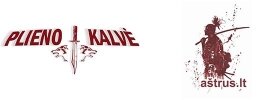National kitchen knife of the eastern Uzbek nation PIÇOQ - ШХ15 industrial carbon steel; acrylic composite, neusilber
National kitchen knife of the eastern Uzbek nation PIÇOQ - ШХ15 industrial carbon steel; acrylic composite, neusilber
Code: AP_003140€Dispatch within 1-2 days. Delivery within 1-2 weeks by the fastest European transport companies.
This knife is SOLD but can be made to order.
The price may change depending on the type and quality of the materials, the terms of making the knife.The Uzbek knife is handmade, so there may be some deviations and differences in color from those shown in the pictures.
ModelPIÇOQBlade SteelШХ15 (Industrial)Hardness of steel, HRC61 - 62Total length280 - 290Blade length170 - 175Blade width35 - 37Blade thickness3.3 - 3.4HandleAcrylic compositeHandle length105 - 110BolsterNeusilberSheathIncluded [artificial leather]-
PIÇOQ or PCHAK (Uzbek Piçoq - “knife”) is the national knife of the peoples of Central Asia - the Uzbeks and Uyghurs. Traditionally it has a straight, wide blade, usually made of carbon wedge steel. Attached to the back of the blade is a thin round handle that flares slightly into a head, sometimes ending in a beak. The handle can be made of antler, bone, wood or even colored stone. PCHAK is stored in a wide straight leather case.
PIÇOQ or PCHAK is distributed throughout Central Asia with slight variations in ornamentation and proportions. Famous traditional areas for the production of PCHAKs: Dzhangisar - an ancient Uyghur city in East Turkestan; Samarkand and Shahrikan in Uzbekistan.
----
The knife is made from the highest quality materials and steel. Please read the section on how to take care of the knife to get the best practice and for it to last many years. With proper care, your knife will serve you a lifetime. Here are some care and maintenance guidelines.
• Always wipe and dry the knife after use.
• For safety, keep the knife dry or in its case.
• Wash with warm soapy water, rinse and dry.
• Like all specialty metal knives, do not put it in the dishwasher.
• Do not place the knife in the oven and avoid heating the knife’s steel. These actions can weaken the structure of the steel.
• The knife is not meant for chopping or throwing. Do not strike the knife against other hard objects, chop bones, or other metallic items.
• Avoid dropping the knife on hard surfaces, such as sinks, concrete, or tiled floors. • Sharpen the knife using oil/lubricant, water or a sharpening belt. Avoid overheating the blades.
It is advised to smear the knife’s blades with thick bearing grease, when not using it for a long time. This protects the blades from being affected by air and moisture.
• Although the knife may be made of stainless steel, it is not advisable to keep it in a damp environment as impurities in the steel composition can change the metal’s color, darken it, and make it look unaesthetic.
• Your knife's handle is made of naturally dense and impregnated wood. It is very durable, but not indestructible.
• Do not use the knife in heat, direct flame, acidic or alkaline solutions. Also, do not keep it wet or submerged in water.
According to the REPUBLIC OF LITHUANIA WEAPONS AND AMMUNITION CONTROL LAW (Chapter III, Art. 7, Sec. 4), this knife is not classified as banned, and is NOT CONSIDERED A PROHIBITED COLD WEAPON. Alternative goods
National kitchen knife of the eastern Uzbek nation PIÇOQ - 95Х18 stainless forged steel; acrylic composite, neusilberCode: AP_001ModelPIÇOQ
Blade Steel95Х18 (stainless)
Hardness of steel, HRC59 - 60
140€












